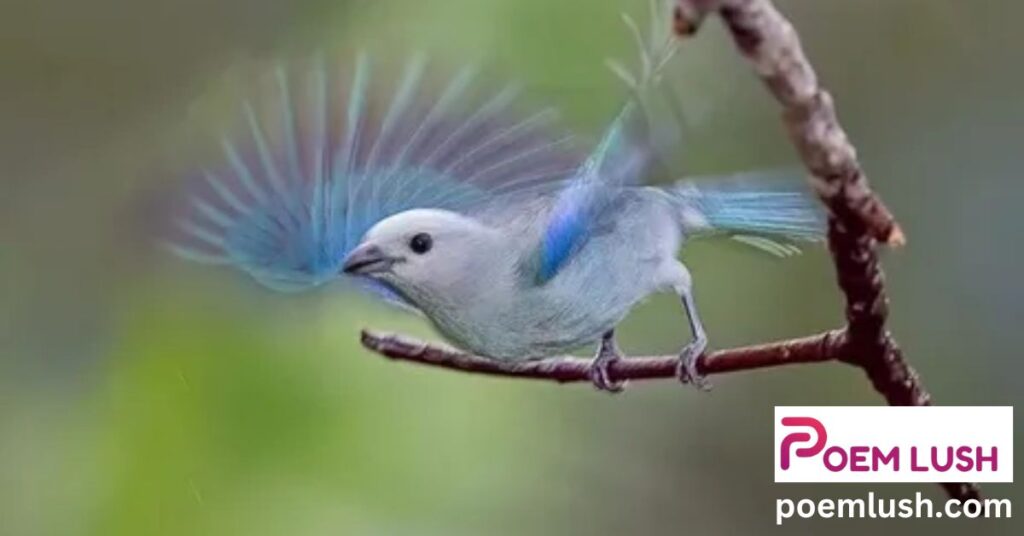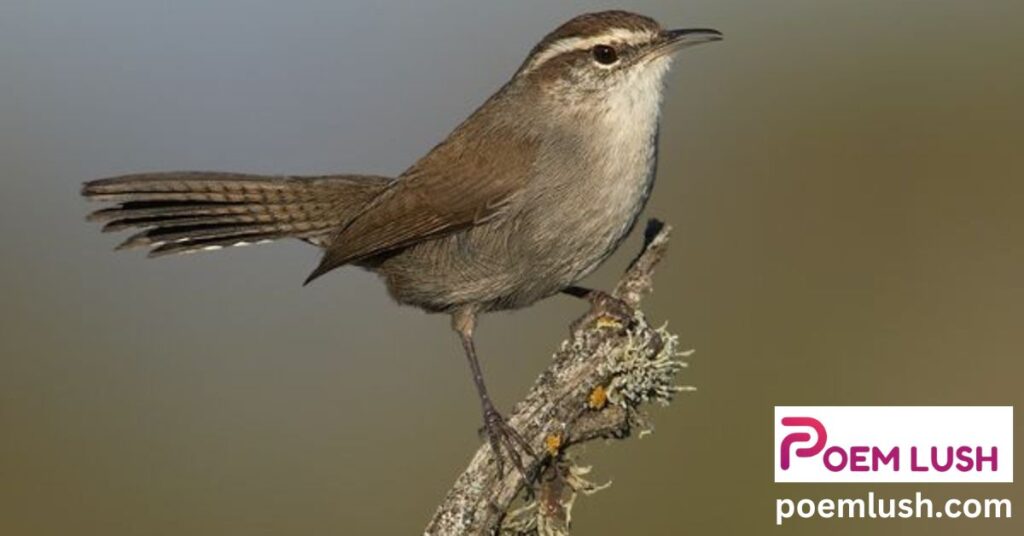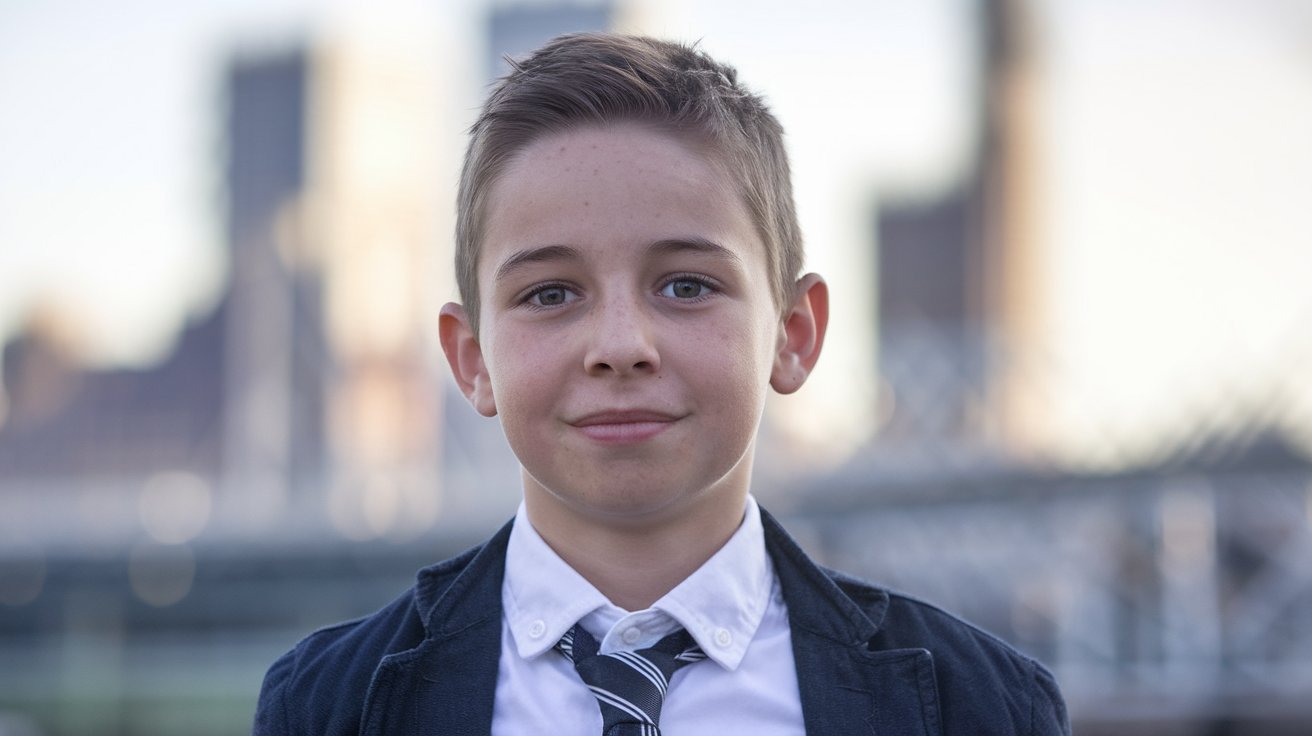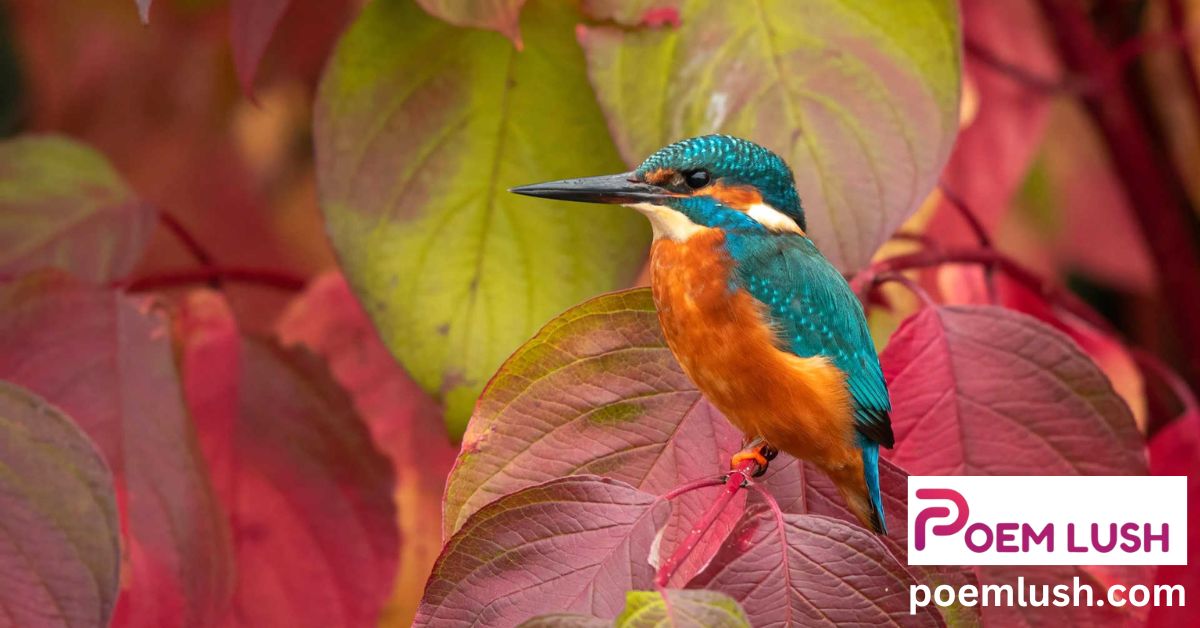Are you searching for writing inspiration? Look no further! Our latest book, Poetry Prompts That Don’t Suck: 100 Prompts to Inspire a Lifetime of Writing, is packed with creative ideas to spark your imagination. Poems About Birds
The Beauty of Bird Poetry

Birds have long been a source of fascination for poets, symbolizing freedom, transcendence, and the delicate balance between the earthly and the divine. Their presence in poetry spans cultures and centuries, capturing their elegance, mystery, and unique characteristics. Whether soaring high above the clouds or perched quietly on a branch, birds inspire countless poetic expressions of life, love, and longing.Poems About Birds
With thousands of species across the world, there is no shortage of poetic inspiration. From majestic eagles to gentle robins, from the melancholic nightingale to the cheerful sparrow, every bird has a story to tell. While we can’t possibly include every bird-related poem, we have selected a few timeless and evocative pieces to share with you.Poems About Birds
Why Write Poems About Birds?
Birds have long been revered in literature and mythology. They serve as messengers of love, omens of fate, and symbols of hope and resilience. Their ability to migrate across vast distances and navigate the unknown makes them powerful metaphors for human experiences.
Whether they are whispering secrets through the rustling leaves or heralding the arrival of a new season with their songs, birds remain a poetic muse like no other.Poems About Birds
Below, we explore two compelling bird poems—one that embraces the gentle harmony between nature and survival, and another that delves into the complex emotions of the human heart.Poems About Birds
Autumn Harvest by C.W. Bryan
Nature’s bounty and the cycle of life through the eyes of birds.
small pink berries arrive
in clusters,
tired from
a long journey through
summer, they begin
to shed the weight
of all they carried
down into
the garden where
blue-backed, orange-vested birds wait
like valets to take
their luggage—
storing it in their
stomachs, for safe
keeping.Poems About Birds
Bluebird by Charles Bukowski
A deeply personal poem about vulnerability, hidden emotions, and the struggles of self-expression.
there’s a bluebird in my heart that
wants to get out
but I’m too tough for him,
I say, stay in there, I’m not going
to let anybody see
you.Poems About Birds
there’s a bluebird in my heart that
wants to get out
but I pour whiskey on him and inhale
cigarette smoke
and the whores and the bartenders
and the grocery clerks
never know that
he’s
in there.Poems About Birds
there’s a bluebird in my heart that
wants to get out
but I’m too tough for him,
I say,
stay down, do you want to mess
me up?
you want to screw up the
works?
you want to blow my book sales in
Europe?
there’s a bluebird in my heart that
wants to get out
but I’m too clever, I only let him out
at night sometimes
when everybody’s asleep.
I say, I know that you’re there,
so don’t be
sad.Poems About Birds
then I put him back,
but he’s singing a little
in there, I haven’t quite let him
die
and we sleep together like
that
with our
secret pact
and it’s nice enough to
make a man
weep, but I don’t
weep, do
you?
The Dalliance of Eagles by Walt Whitman
Skirting along the winding river road during my leisurely forenoon walk, I pause to rest, soaking in the tranquil atmosphere.Suddenly, breaking the silence of the sky, a muffled yet powerful sound erupts—the passionate interplay of eagles. High above, suspended in the vast open space, they engage in a breathtaking aerial dance.
They rush toward one another with uncontainable fervor, their claws interlocking in an unbreakable grip, forming a spinning, living wheel of power and grace.
Four strong wings beat the air in rhythmic harmony, two sharp beaks poised in perfect symmetry, their entwined forms a swirling mass locked in an aerial embrace.They spiral downward in a tumbling, twisting descent, forming intricate loops in midair, plummeting toward the river below.Then, in a fleeting yet profound moment of stillness, they hover, motionless, as if balanced on the invisible strings of the wind.With talons finally unlatched, they part, drifting in opposite directions.
Gracefully, they ascend once more, their separate paths now unfolding—she soaring her way, he pursuing his own, each continuing their independent yet intertwined journey.Poems About Birds
Ode to a Nightingale by John Keats
My heart throbs with a deep, aching sorrow, a heavy drowsiness taking hold.
A numbing sensation spreads, as if I had consumed the fatal poison of hemlock,
Or drained a cup filled with an opiate so potent that it pulls me toward oblivion—
Sinking me into the river of forgetfulness, drowning me in Lethe’s dark embrace.
Yet this melancholy does not stem from envy of your joy,
But rather from an overwhelming sense of awe—
A happiness too immense to bear, brought forth by your song.
You, a delicate and light-winged Dryad of the trees,
Nestled in the heart of a melodious haven,
Surrounded by an endless expanse of lush, green beeches,
Where shadows play and dance, countless in their number.
With a voice as pure as the summer breeze, you sing—
A symphony of nature’s harmony, your song echoing in full-throated ease.Poems About Birds
A Bird, Came Down the Walk by Emily Dickinson
A bird, unknowing of my silent gaze,
Came down the winding garden path,
Pausing only to feast—biting an angleworm in two,
Consuming it raw in nature’s unfiltered way.
Then, with delicate precision, it sipped morning dew
From a blade of grass, a convenient goblet of refreshment.
In a swift, elegant motion, it hopped aside,
Making room for a tiny beetle to pass unharmed.
Its eyes flickered rapidly, darting about in restless watchfulness—
Glistening like beads of glass, filled with an unspoken wariness.
It stirred its velvet-plumed head with cautious intent,
A creature perpetually poised for flight.Poems About Birds
I offered a crumb, an act of quiet kindness,
Yet it did not linger; instead, it spread its feathers wide,
And with a graceful, rhythmic motion, it took to the sky—
Rowing itself homeward on invisible oars,
Moving with a lightness that defied gravity.
Like a rippleless butterfly drifting above the golden fields of noon,
It vanished into the vast expanse, a fleeting wonder of nature.
The Swan by Mary Oliver
Did you witness it, gliding in solemn majesty, through the dark, endless river at night?
Did you see it rise at dawn, lifting itself toward the heavens, luminous and resplendent?
Its wings a cascade of white, as delicate as silk and as boundless as clouds.
Like a sculpture brought to life, it moved, surrendering to the embrace of the wind.
A snowbank afloat, a river of lilies in motion,
Its black beak piercing the sky with an air of quiet command.Poems About Birds
Did you hear its song—a haunting melody, sharp as the falling rain,
A harmony as fierce as a waterfall cascading over jagged rocks?
And then, as it soared higher, did you see its shadow glide beneath the clouds—
A cross of pure white, streaming across the sky,
Its feet dangling like dark leaves, its wings a reflection of the river’s light?
Did you feel it, deep within, the weight of beauty unspoken?
And did you finally understand its meaning?
Have you, too, been changed?
Crow by C.W. Bryan
High above, a crow rides the wind, gliding effortlessly,
Drifting over the vast gray sky, a silent sentinel of the storm.
With wings like a black shroud, he sails the unseen currents,
Suspended in the air as though time itself has paused.
He neither flaps nor falters, a figurehead carved in obsidian,
His form unwavering, his presence eternal.
Below, the earth moves, but he remains still—
An observer of the cosmic tide.Poems About Birds
Then, in a sudden, powerful motion, he sheds his stillness,
Diving beneath the towering green pines,
Surfacing once more with a cry so sharp
That even the foghorn trembles in its wake.
Returning to his throne in the sky,
He claims his place as ruler of the heavens once more.
The Swan by F.S. Flint
Under the golden glow of the lilies,
Where mauve and blue hues blend in the water’s dance,
The silver-scaled fish quiver, hidden beneath floating petals.
Gliding over rippling reflections, its neck an arc of polished copper,
The swan moves with an air of quiet dignity,
Drifting toward the dark depths beneath the arching bridge.
As it vanishes into the shadows, it carries with it a single, white rose—
A luminous ember against the sorrowful void.
At the Corner of Grant Park by C.W. Bryan
The window is lowered, allowing the earthy scent of rain-soaked soil
And freshly cut grass to spill into my senses,
Seeping into my thoughts like an unshakable dream.
Three geese stand motionless, their dark forms rising from the green field,
Silent sentinels in nature’s quiet embrace.
Their presence demands my attention, their gaze unyielding.
Their eyes—dark, unknowable, infinite—
Hold secrets beyond comprehension, stories untold.
The depth of their vision weighs upon my mind,
A mystery too vast to explain, too profound to ignore.
Like the fleeting remnants of a dream, they remain etched in memory,
An echo of something both distant and deeply familiar.
This expanded and enriched version deepens the imagery and adds more descriptive layers to each poem while maintaining their original essence.
Majestic Blue Heron
As I wandered along the quiet shoreline, my feet sinking slightly into the damp sand, my eyes caught sight of a lone heron. It stood motionless, its silhouette blending seamlessly into the muted tones of the sky and sea. The tattered wings that draped over its back resembled a hunchback’s coat, worn and weary from time and travel. A shadow without substance, as if suspended by invisible threads, it seemed like an image cut out and pasted onto the soft canvas of the day. Who had placed it there?
What unseen hands had crafted this solemn figure, perched against the backdrop of an abandoned summer retreat, its memories fading with the passing of countless seasons?The sight of the heron transported me back to a time long gone, to a distant summer filled with the innocence of childhood. As I stood there, the question surfaced in my mind: “Heron, whose ghost are you?”
I lingered on the shore, the solitude of the moment wrapping around me like a cold embrace. A sudden chill, unnatural for the warmth of the day, ran through me. My heart quickened as my thoughts leaped ahead, racing like a child toward an answer. I turned and ran, my feet kicking up sand, my breath shallow with excitement and uncertainty. Bursting into the house, I found my mother and pulled her by the hand, eager for her to witness the strange and spectral sight. But when we reached the shore, the heron had vanished, as if it had never been there at all.
Yet my mother’s sharp eyes, attuned to the world in ways mine were not, caught sight of it gliding above the tallest pines. Its great wings stretched wide, carrying it effortlessly across the sky. Could those same ragged, ashen wings—so heavy and lifeless on the ground—truly belong to this soaring creature?
They had seemed like broken limbs, remnants of something once strong but now fallen. In that moment of quiet loss, understanding dawned upon me. My mother knew. She understood the mystery of the heron, the truth that eluded me in my youth. She saw what I could not yet see.
The Cardinal by Howard Moss
With summer’s return, the birds commence their endless cycle, repeating the rituals of life and survival. They build their nests in the hidden nooks of the world, staking claims over branches and rooftops, waging silent battles in the air. Each season brings with it a new chorus, a medley of calls and responses, echoing through the warm twilight.
One evening, a cardinal, brilliant in its scarlet splendor, perched atop a tree and released a melody so rich, so full of longing, that time itself seemed to pause. For long, red minutes, it stood there, pouring its soul into the dusk, its vibrant hue deepening with every note. The summer evening, thick with the fragrance of blooming flowers and the hum of unseen creatures, seemed to hush in reverence.
Then, as suddenly as it began, the song ceased. Without a sound, the cardinal took flight, disappearing into the thick embrace of the trees, leaving behind only the echo of its music and the lingering wonder of those who had paused to listen.
Exploring the Beauty of Bird Poetry

Birds have long been a source of inspiration for poets, their movements and songs weaving into the fabric of countless verses. Whether it is the haunting presence of a heron, the passionate call of a cardinal, or the fleeting glimpse of a sparrow at dawn, birds symbolize freedom, mystery, and the passage of time.
If you find yourself enchanted by avian poetry, you may enjoy exploring Bird Haiku, where the delicate art of haiku captures the essence of birds in brief but powerful moments. Additionally, the anthology On Wings of Song from Everyman’s Library is a treasure trove of poetic tributes to birds, featuring the works of literary greats such as Thomas Hardy, Elizabeth Bishop, and Emily Dickinson.
In the delicate flutter of a wing, in the quiet repose of a perched figure, and in the vibrant chorus of an evening song, birds remind us of nature’s poetry—ever-present, ever-moving, and always waiting to be heard.
conclusion
Birds have long inspired poets with their beauty, grace, and song. Through these poems, we have explored their journeys across the sky, their melodies at dawn, and the symbolism they carry in our hearts. Whether soaring freely or singing from the treetops, birds remind us of the wonders of nature and the freedom of the spirit. As we listen to their songs and watch their flight, may we continue to find joy, inspiration, and a sense of connection with the natural world.
FAQs
What are some famous poems about birds?
Some well-known poems about birds include “The Raven” by Edgar Allan Poe, “Ode to a Nightingale” by John Keats, “To a Skylark” by Percy Bysshe Shelley, and “The Windhover” by Gerard Manley Hopkins.
Why do poets write about birds?
Birds symbolize freedom, beauty, nature, and spirituality. Poets often use birds to express emotions, explore themes of life and death, or represent hope and inspiration.
Which bird is most commonly featured in poetry?Some of the most common birds in poetry are the nightingale, raven, skylark, dove, and eagle, each carrying different symbolic meanings.
Can bird poems be about personal experiences?
Yes! Many poets use birds as metaphors for personal experiences, emotions, or memories, making them relatable and deeply meaningful.
Where can I find poems about birds?
You can find bird-themed poems in poetry anthologies, literature websites, classic poetry books, and even modern online poetry platforms.


